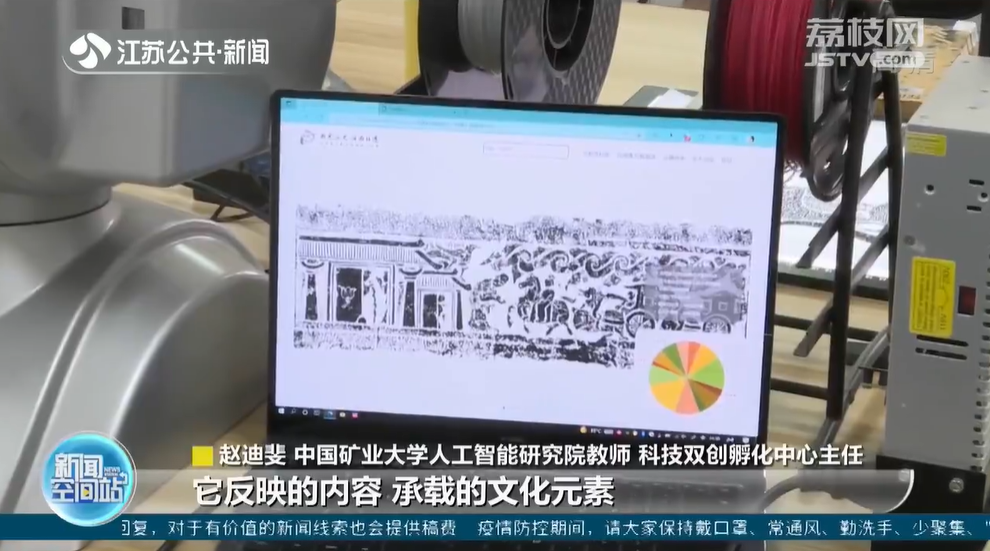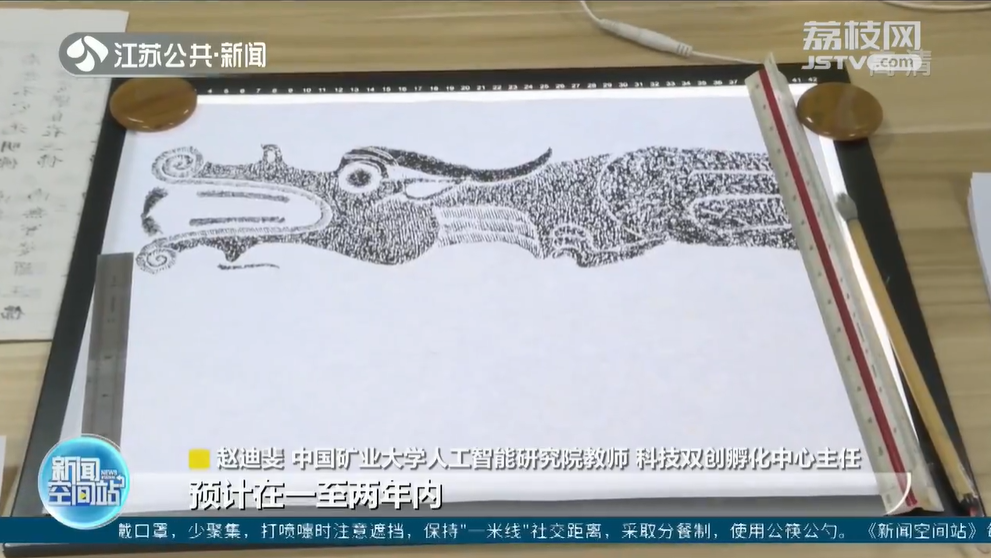A team from China University of Mining and Technology has set up a digital database of more than 1 million words to bring back to life the portrait stones of the Han Dynasty more than 2,000 years ago.

According to Professor Zhao Difei of China University of Mining and Technology, he came up with the idea of using big data for digital preservation of the Han dynasty portrait stones as they need to be protected due to the old history.
Zhao Difei, Teacher, Institute of Artificial Intelligence, China University of Mining and Technology, Director of the Incubation Center for Innovation and Entrepreneurship
Our image vectorization process allows us
to see the details of the portrait come to life
including the engraved brushwork
the cultural elements it reflects
and we can even enlarge it with very high precision
The Internet + Innovation Team of China University of Mining and Technology, established by Mr. Zhao Difei, has collected thousands of rubbings and related video materials of the Han Dynasty portrait stones in the past ten years. They have sorted out hundreds of thousands of relevant documents and materials, and generated a database of Han Dynasty stone portraits with more than 1 million words.
The team also implemented online intensive repairs, built a museum of Han Dynasty stone portraits, and build relevant IP cultural and creative and popular science courses to carry out a living inheritance.

Zhao Difei, Teacher, Institute of Artificial Intelligence, China University of Mining and Technology, Director of the Incubation Center for Innovation and Entrepreneurship
We have established
a digital technology research room
for Chinese stone carvings
that integrates different disciplines of science
science and culture
and guide students to participate
in the digital protection of Chinese stone carvings
We have introduced technologies
such as image processing artificial intelligence
into digital protection
so that each element of an image
to be saved and utilized individually
For some damaged Han Dynasty portrait stones, the team consulted experts and then carried out detail restoration, deformation refinement, and damage repair.
Up to now, the team has completed the digital image processing of more than 10,000 Chinese stone portrait elements and the refinement of more than 1,000 cloud rubbings, providing solid resource support for the development of derivatives, secondary creation and the construction of digital cultural expositions.
Zhao Difei, Teacher, Institute of Artificial Intelligence, China University of Mining and Technology, Director of the Incubation Center for Innovation and Entrepreneurship
In the future
we will further introduce artificial intelligence technology
to realize automatic and intelligent processing
and preservation of images in batches
and develop digital art works
based on artificial intelligence in line
with the artistic style of the Han Dynasty
It is expected that within one to two years
we will launch a database
and digital processing software for use
in scientific research and art at home and abroad





